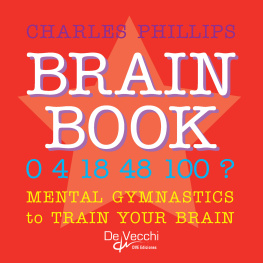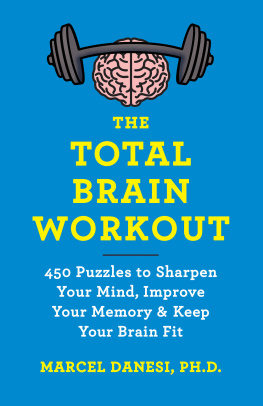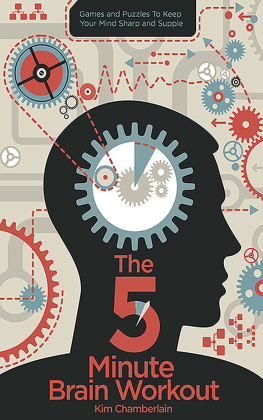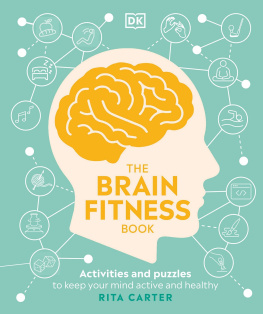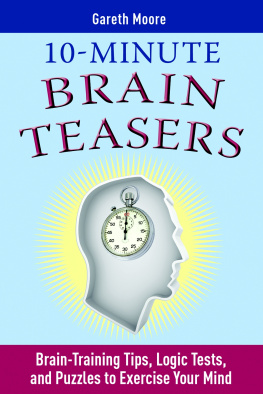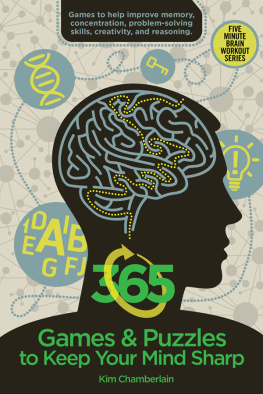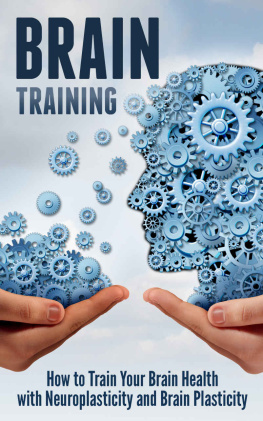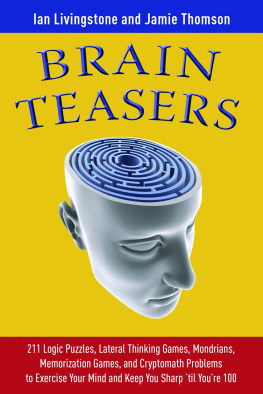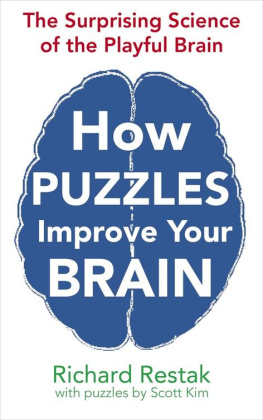Phillips Charles - Brain book. Mental gymnastics to train your brain
Here you can read online Phillips Charles - Brain book. Mental gymnastics to train your brain full text of the book (entire story) in english for free. Download pdf and epub, get meaning, cover and reviews about this ebook. publisher: Parkstone International, genre: Religion. Description of the work, (preface) as well as reviews are available. Best literature library LitArk.com created for fans of good reading and offers a wide selection of genres:
Romance novel
Science fiction
Adventure
Detective
Science
History
Home and family
Prose
Art
Politics
Computer
Non-fiction
Religion
Business
Children
Humor
Choose a favorite category and find really read worthwhile books. Enjoy immersion in the world of imagination, feel the emotions of the characters or learn something new for yourself, make an fascinating discovery.
- Book:Brain book. Mental gymnastics to train your brain
- Author:
- Publisher:Parkstone International
- Genre:
- Rating:4 / 5
- Favourites:Add to favourites
- Your mark:
- 80
- 1
- 2
- 3
- 4
- 5
Brain book. Mental gymnastics to train your brain: summary, description and annotation
We offer to read an annotation, description, summary or preface (depends on what the author of the book "Brain book. Mental gymnastics to train your brain" wrote himself). If you haven't found the necessary information about the book — write in the comments, we will try to find it.
Brain book. Mental gymnastics to train your brain — read online for free the complete book (whole text) full work
Below is the text of the book, divided by pages. System saving the place of the last page read, allows you to conveniently read the book "Brain book. Mental gymnastics to train your brain" online for free, without having to search again every time where you left off. Put a bookmark, and you can go to the page where you finished reading at any time.
Font size:
Interval:
Bookmark:
Charles Phillips
BRAINBOOK
Mental gymnastics to train your brain
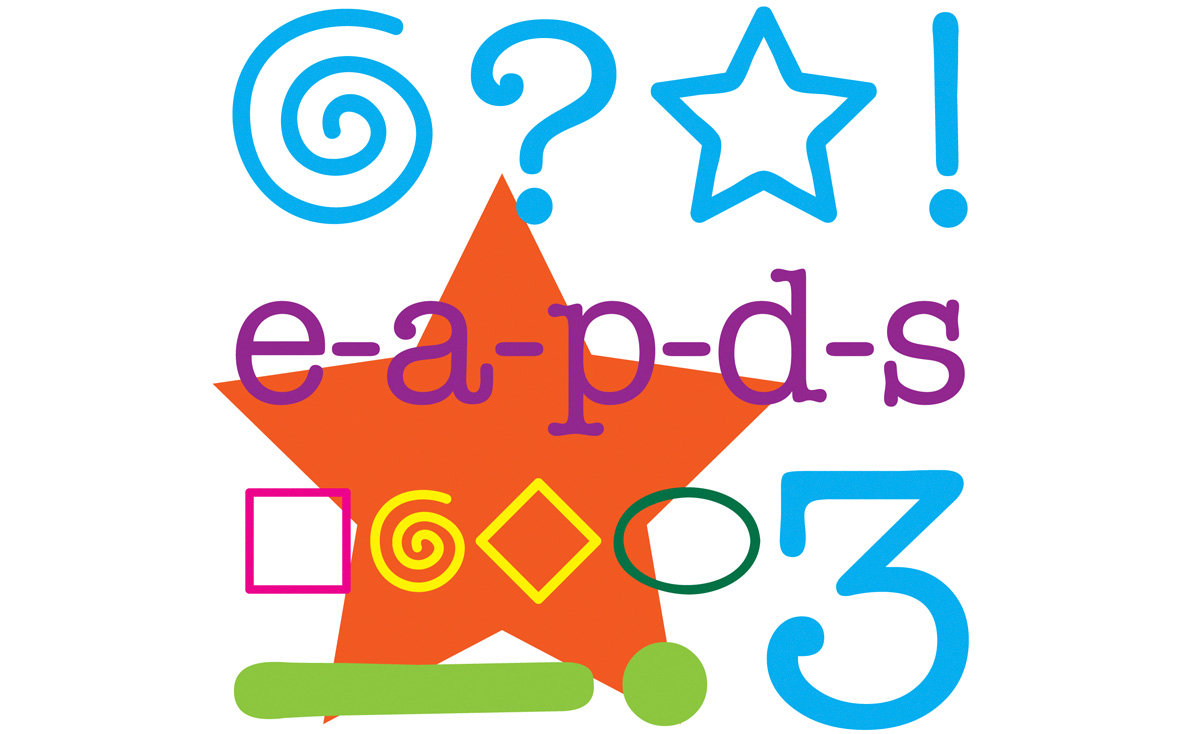
DE VECCHI EDICIONES
The author or publisher cannot be held responsible for the information (formulas, recipes, techniques, etc.) contained in the text, even though the utmost care has been taken in the writing of this work. In the case of specific - often unique - problems of each particular reader, it is advisable to consult a qualified person to obtain the most complete, accurate and up-to-date information possible. EDITORIAL DE VECCHI, S. A. U.
The right of Charles Phillips to be identified as the author of this work has been asserted by him in accordance with the Copyright.
Editorial De Vecchi, S. A. 2021
[2021] Confidential Concepts International Ltd., Ireland
Subsidiary company of Confidential Concepts Inc, USA
ISBN: 978-1-63919-041-6
The current Penal Code provides: Anyone who, for profit and to the detriment of a third party, reproduces, plagiarizes, distributes or publicly communicates, in whole or in part, a literary, artistic or scientific work, or its transformation, interpretation or artistic performance fixed in any medium or communicated by any means, without the authorization of the holders of the corresponding intellectual property rights or their assigns, shall be liable to imprisonment for a term of six months to two years or a fine of six to twenty-four months. The same penalty shall be imposed on anyone who intentionally imports, exports or stores copies of such works or productions or performances without the said authorization. (Article 270)
CONTENTS
Remember how we were once told that our mental ability peaks at around age 1824 and that it would be downhill from then on? We were warned that heading a ball during a game of soccer or drinking too much would accelerate our decline by killing neurons. We were told that if neural networks (webs of connected brain cells) were destroyed, they could never be remade. All this, it turns out, is untrue.
Scientists now know that the brain is a regenerating organ. If we use it, if we keep our brain cells firing and making new connections, then its powers will not dwindle. Even in our mature years, the brain can repair and regenerate itself. Your future is bright.
With this in mind, welcome to the Brain Book, the key to keeping your brain trim and your thinking lively. This little book contains a wealth of scientific facts about the brain, to help you appreciate just how powerful your thinking organ is and what astonishing feats its capable of. And its also full of specially designed puzzles and exercises that will challenge your brain and give it the training it deserves. Working your way through this book will help you achieve peak mental performance whatever your age.
Fulfil your potential The typical brain has ten billion brain cells. When you think, when you learn something new, you forge connections within your brain. Each of your neurons connects an average ten thousand times with other brain cells, making a staggering total of one hundred thousand billion connections. Indeed, there are more connections in your brain than there are stars in the Milky Way galaxy.
TACKLING THE PUZZLES
Throughout the book you will find puzzles and exercises designed to get different parts of your brain in gear. The more straightforward puzzles are rated as one bar ( see bottom left ),but the rating of five bars ( see bottom right ) is reserved foronly the most difficult of challenges.
As scientists have come to a more accurate understanding of the brain, they have realized that the potential of our thinking organ is truly staggering. The number of connections we are capable of forming is colossal. One estimate, made by Pyotr Anokhin and quoted by expert Tony Buzan, is the number 1 followed by ten million kilometres (six million miles) of 0s. So the potential connections outnumber atoms in the universe. This should give you some idea of your potential.
We are getting younger If you are of mature years, you may be younger than you think! In terms of life expectancy you are younger than your grandfather or mother was at your age. Moreover, armed with the latest knowledge on how your brain works, you have a much better chance than your grandparents had of keeping fully alert in later life. So read through the Brain Book and prepare to marvel at the power of your grey matter.
Neuroscientists and brainpower experts will also tell you that your perceptions the way you see reality are among the most important elements of your thinking. If you believe I am getting older and feeling tired, my memory is beginning to fail and my mind is falling apart, then youll probably begin to make these imagined effects real. But if you think, Whatever age I am, my mind can be alert and fully stimulated if I take the trouble to keep it active, you have already started to protect your brain from decline.
TheBrain Boxpuzzle The wooden puzzle in the box consists of a neat six-sided cube, made from 27 smaller cubes. Unravelling it is easy, but fitting it back together is quite a challenge! The puzzle provides a good visualspatial workout helping your ability to think in three dimensions as well as boosting your overall powers of thought. To solve it, you will need patience and imagination to find fresh perspectives.
THINK YOUNG!
Research shows that over-65s can reduce their mental age by 14 years through brain training with problem-solving and puzzles.
To get the most out of training the brain, we need a little background knowledge. What is thinking? Why do we feel emotions? How does memory work? What are lateral thinking and intuition? This know-how will help us plan a mental gymnastics routine to stretch the brains many high-powered capabilities.
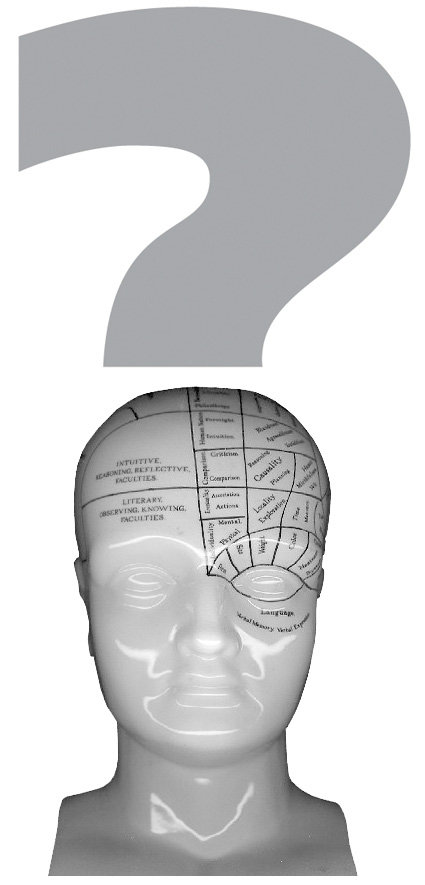
A short history of the brain
Our early ancestors did not associate the brain with memory, intelligence and other mental faculties they thought of the mind rather as a disembodied spirit. The ancient Egyptians, for example, revered the heart as the centre of intelligence and saw the brain largely as an unimportant organ.
In the first millennium BCE the ancient Greeks were the first to link the brain with the mind: in the 6th century BCE Alcmaeon declared that intelligence resided in the brain, while in the 5th century BCE , Plato suggested that the brain recorded impressions from experience, like mouldings pressed in soft wax. But his most famous student, Aristotle, followed the Egyptians in believing that the heart was the organ of thought while the brains job was to cool the blood.
Herophilus, a Greek anatomist working in the north African city of Alexandria in the 4th3rd centuries BCE , identified the brains ventricles (spaces in the brain that carry protective and nourishing cerebrospinal fluid) as the locus of our thinking power. This theory was taken up in the 2nd century CE by Galen of Pergamum, then transmitted to Europe by Arab physicians and generally accepted for hundreds of years.
The nervous system Only in the 18th and 19th centuries did researchers begin to understand the brains role in the nervous system; some, including the German anatomist Franz Gall, drew maps tracing which part of the brain was linked to which activity. But by the mid-20th century this model had been shown to be too simple and scientists such as Karl Spencer Lashley were arguing that the whole brain was involved in the more complex processes of the mind.
Font size:
Interval:
Bookmark:
Similar books «Brain book. Mental gymnastics to train your brain»
Look at similar books to Brain book. Mental gymnastics to train your brain. We have selected literature similar in name and meaning in the hope of providing readers with more options to find new, interesting, not yet read works.
Discussion, reviews of the book Brain book. Mental gymnastics to train your brain and just readers' own opinions. Leave your comments, write what you think about the work, its meaning or the main characters. Specify what exactly you liked and what you didn't like, and why you think so.

